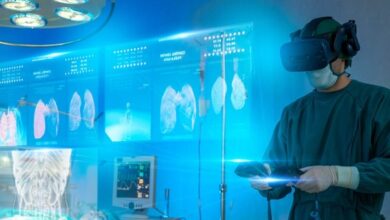Learn All About What Is an Infectious Disease Doctor?

In the vast healthcare landscape, certain specialists play a pivotal role in safeguarding public health. Among them, What is an infectious disease doctor stand out as frontline warriors against many illnesses caused by bacteria, viruses, and fungi. Let’s delve into the world of these medical professionals, exploring their education, responsibilities, and the crucial impact they have on global health.
Introduction
Definition of an Infectious Disease Doctor
Infectious disease doctors, also known as infectious disease specialists, are medical professionals with specialized training in the diagnosis and treatment of infections. Their expertise covers a wide range of illnesses, from common infections to rare and complex diseases.
Significance in Healthcare
Infectious disease doctors play a crucial role in preventing, diagnosing, and treating infections. Their work extends beyond individual patient care to contribute significantly to public health initiatives, research, and the development of strategies to combat emerging infectious diseases.
Educational Background
Medical School
The journey to becoming an infectious disease doctor typically begins with attending medical school. Here, aspiring doctors build a strong foundation in basic medical sciences, laying the groundwork for their future specialization.
Residency in Internal Medicine
After completing medical school, individuals interested in infectious diseases undergo a residency program in internal medicine. This phase provides comprehensive training in diagnosing and managing a broad spectrum of medical conditions.
Fellowship in Infectious Diseases
The final step involves a fellowship in infectious diseases, a specialized training program focused on developing infections. This intensive training equips doctors with the knowledge and skills needed for the challenges they will face in their future careers.
Role and Responsibilities
Diagnosing Infectious Diseases
One of the primary responsibilities of infectious disease doctors is diagnosing infections accurately. They employ a combination of clinical expertise, laboratory tests, and imaging studies to identify the causative agents and determine the most effective treatment.
Treatment Planning
Once a diagnosis is established, infectious disease doctors treatment strategies. This may involve prescribing antimicrobial medications, coordinating with surgical specialists, or providing guidance on supportive care.
Collaborating with Other Healthcare Professionals
Including microbiologists, pharmacists, and surgeons. This collaborative approach ensures a multidisciplinary effort in managing complex cases and addressing the challenges posed by infectious diseases.
Areas of Expertise
Viral Infections
Viral infections, ranging from common colds to more severe illnesses such as HIV/AIDS and influenza. Their knowledge extends to the latest antiviral medications and emerging treatment modalities.
Bacterial Infections
Bacterial infections, including antibiotic-resistant strains, fall under the purview of infectious disease specialists. They stay abreast of evolving resistance patterns and contribute to the development of new antibiotics.
Fungal Infections
Infectious disease doctors are well-versed in identifying and managing these infections, which can affect various organ systems.
Importance in Public Health
Disease Prevention Strategies
In addition to treating individual cases, infectious disease doctors actively participate in designing and implementing disease prevention strategies. This includes recommendations for vaccinations, infection control measures, and public health campaigns.
Outbreak Management
During outbreaks of infectious diseases, these specialists play a crucial role in managing the situation. They collaborate with public health agencies, conduct contact tracing, and provide guidance on containment measures.
Vaccination Recommendations
Infectious disease doctors contribute to the development and evaluation of vaccines. Their recommendations regarding vaccination schedules and strategies have a significant impact on preventing the spread of infectious diseases.
Cutting-Edge Research
Contribution to Medical Advancements
The field of infectious diseases is dynamic, with ongoing research to understand new pathogens and improve treatment modalities. Infectious disease doctors actively contribute to medical advancements through clinical trials, research publications, and participation in scientific conferences.
Global Health Initiatives
Infectious disease doctors often engage in global health initiatives, addressing infectious diseases that transcend borders. Collaborative efforts on an international scale contribute to the control and eradication of diseases that pose threats to populations worldwide.
Challenges Faced
Emerging Infectious Diseases
The constant evolution of infectious agents presents a challenge for infectious disease doctors. Emerging infections, such as novel viruses, require rapid adaptation and innovative approaches to diagnosis and treatment.
Antibiotic Resistance
The global challenge of antibiotic resistance is a significant concern for infectious disease specialists. They actively participate in antimicrobial stewardship programs and research efforts to combat resistance and preserve the effectiveness of existing antibiotics.
Public Misconceptions
Addressing public misconceptions about infectious diseases is another challenge. Infectious disease doctors play a role in educating the public about the nature of infections, the importance of vaccination, and the appropriate use of antibiotics.
Qualities of a Good Infectious Disease Doctor
Analytical Skills
Given the complexity of infectious diseases, analytical skills are crucial. Infectious disease doctors must analyze clinical data, laboratory results, and evolving research to make informed decisions about diagnosis and treatment.
Communication Skills
Effective communication is essential for collaborating with other healthcare professionals and educating patients. Infectious disease doctors must convey complex medical information in a way that is easily understood by diverse audiences.
Adaptability
The ability to adapt to evolving challenges and emerging infectious threats is a key quality. Infectious disease doctors must stay informed about the latest developments in their field and be ready to implement new strategies in response to changing circumstances.
Career Outlook
Demand for Infectious Disease Specialists
The demand for infectious disease specialists is expected to grow as infectious diseases continue to pose global challenges. The expertise of these specialists is crucial for managing both common infections and emerging threats.
Job Opportunities
Infectious disease doctors find employment in various settings, including hospitals, research institutions, and public health agencies. Their skills are sought after in both clinical practice and research positions.
How to Become an Infectious Disease Doctor
Steps to Pursue a Career
Aspiring infectious disease doctors should follow a structured path, including medical school, internal medicine residency, and a fellowship in infectious diseases. Continuous learning and staying updated on the latest developments in the field are key to a successful career.
Continuing Medical Education
The dynamic nature of infectious diseases requires ongoing education. Infectious disease doctors participate in conferences, workshops, and online courses to stay informed about new pathogens, treatment modalities, and research findings.
Notable Infectious Disease Doctors
Contributions to the Field
Highlighting the contributions of notable infectious disease doctors provides insight into the impact of their work on the field. From groundbreaking research to advancements in clinical practice, these individuals have left a lasting legacy.
Impact on Public Health
The influence of infectious disease doctors extends beyond individual patients to the broader community. Notable figures in the field have played pivotal roles in shaping public health policies and contributing to global efforts to combat infectious diseases.
Patient Testimonials
Personal Experiences with Infectious Disease Doctors
Real-life stories from patients who have benefited from the expertise of infectious disease doctors offer a human perspective on the importance of timely diagnosis and treatment. These testimonials underscore the positive impact these specialists have on individuals and communities.
Importance of Timely Diagnosis and Treatment
Patients share their experiences of facing infectious diseases, emphasizing the critical role infectious disease doctors play in providing timely and effective care. These stories highlight the difference early intervention can make in the outcome of infectious diseases.
Future Trends in Infectious Disease Medicine
Technological Advancements
Advancements in technology, including diagnostic tools and telemedicine, are shaping the future of infectious disease medicine. These innovations enhance the ability to diagnose and manage infections, especially in remote or underserved areas.
Global Collaboration in Research
The interconnected nature of infectious diseases necessitates global collaboration. Future trends in infectious disease medicine involve increased cooperation among researchers, healthcare professionals, and public health agencies to address global health challenges. Read more…
Conclusion
Infectious disease doctors play an indispensable role in safeguarding public health. Their expertise in diagnosing, treating, and preventing infections contributes to individual well-being and the broader community. As we navigate a world with evolving infectious threats, the significance of these specialists becomes increasingly evident. Despite challenges, infectious disease doctors remain at the forefront of medical advancements, shaping the future of healthcare.
FAQs
Q: What conditions does an infectious disease doctor treat?
A: Infectious disease doctors treat a wide range of conditions caused by bacteria, viruses, and fungi. This includes common infections, as well as more complex and rare diseases.
Q: How long does it take to become an infectious disease specialist?
A: Becoming an infectious disease specialist typically requires several years of education and training. After completing medical school, a residency in internal medicine, and a fellowship in infectious diseases, the process generally takes around 8-10 years.
Q: Are infectious disease doctors involved in vaccination research?
A: Yes, infectious disease doctors actively participate in vaccination research. They contribute to developing, evaluating, and recommending vaccines to prevent the spread of infectious diseases.
Q: Can an infectious disease doctor work in a public health agency?
A: Yes, infectious disease doctors can work in public health agencies. Their expertise is valuable for designing and implementing disease prevention strategies, managing outbreaks, and contributing to public health policies.
Q: How often should one consult an infectious disease doctor?
A: Consultation with an infectious disease doctor is recommended when facing symptoms of infectious diseases, especially if the condition is persistent, severe, or if there are concerns about a potential infection. Always consult with a primary care physician for initial guidance




